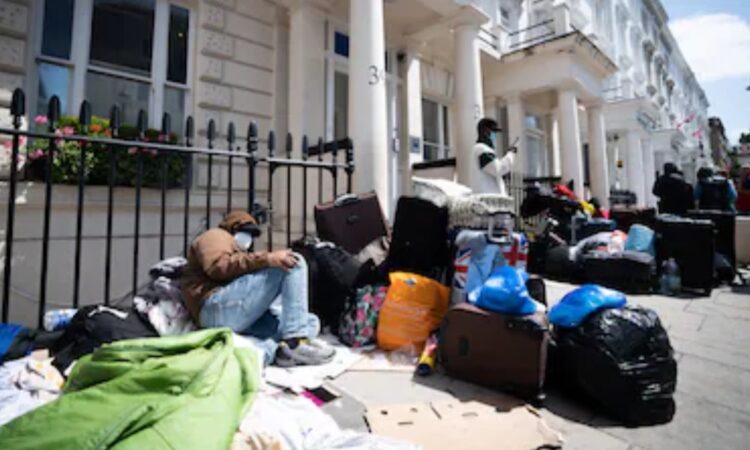
The government has announced plans to reduce the number of hotels used to house asylum seekers by the end of March, according to a Home Office minister. This is part of an effort to manage the rising costs of temporary accommodations and improve the asylum process in the UK.
Dame Angela Eagle told MPs in Parliament that nine hotels currently being used for asylum seekers are scheduled to close in March.
This is part of a broader government commitment to cut down on the use of hotels. She explained that the government is working to make the asylum system faster and more efficient. This includes creating a new Border Security Command to address the issue of people-smuggling gangs, which play a big role in illegal migration.
Dame Angela said: “Since the last general election, there has been an increase of six hotels used for housing asylum seekers. However, by the end of March, nine hotels will have closed, meaning fewer will be in use.”
During the session, Conservative MP Sir Ashley Fox asked when the number of asylum seekers living in hotels would drop below the levels seen before the last general election. He pointed out that while some hotels have closed under new policies, more have opened to meet the growing demand.
Dame Angela admitted the situation is challenging and can’t be fixed quickly. She said the problem is made worse by the backlog of asylum cases that the current government inherited. She added: “We are working very, very hard to reduce the use of hotels. It’s not an overnight fix, but progress is being made. By the end of March, we will have closed nine more hotels.”
The Pause on Syrian Asylum Claims
Liberal Democrat MP Lisa Smart raised concerns about Syrian asylum seekers stuck in limbo. She shared the story of a family in her constituency—a mother and her three children—who have been living in an asylum hotel for nine months, waiting for a decision on their case. She argued that this situation is not only bad for the mental health of asylum seekers but is also costly for taxpayers.
Lisa Smart asked when Syrian asylum claims would be resumed and what the government is waiting for. Dame Angela explained that many countries, including the UK, have temporarily paused asylum applications from Syria due to the unstable situation in the region.
She said: “Until the future in Syria becomes clearer, it’s very difficult to make decisions on these cases. This pause is not unique to the UK—most of Europe has also paused Syrian claims. We are watching the situation closely, and as soon as there’s progress, we will update Parliament.”
The discussion highlighted the challenges faced by both the government and asylum seekers. Many families are left waiting in hotels for long periods, which can be mentally and emotionally difficult. At the same time, the government is under pressure to address the backlog of cases, manage costs, and tackle the root causes of illegal migration, such as people-smuggling networks.
The government says it is making efforts to improve the system and ensure fewer hotels are needed. However, many MPs argue that more needs to be done to speed up asylum decisions and provide better solutions for those waiting for a new life in the UK.




